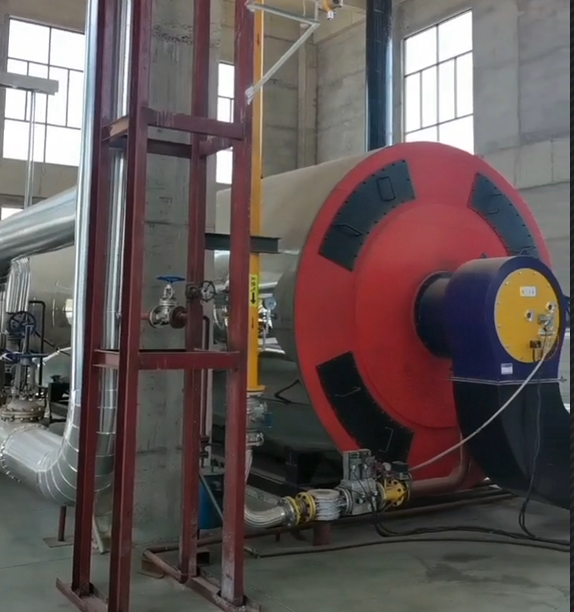
Oct . 22, 2024 05:10 Back to list
Ideal Temperature Settings for Hot Water Boilers Explained
Understanding Hot Water Boiler Temperature Settings
When it comes to maintaining comfort in our homes, hot water boilers play an essential role. They provide the necessary heat for heating systems and domestic hot water. However, determining the right temperature settings for your hot water boiler can significantly impact your efficiency, safety, and energy bills. This article explores the optimal temperature settings for hot water boilers and the factors that influence them.
The Basics of Hot Water Boiler Temperature Settings
Hot water boilers work by heating water to a specific temperature before circulating it through pipes to radiators or faucets. The temperature settings are typically measured in degrees Fahrenheit or Celsius. For most residential hot water systems, a common temperature range is between 120°F and 180°F (49°C to 82°C).
Low Temperature Settings (120°F - 140°F) Setting your boiler to a lower temperature can help save energy and reduce heating bills. A temperature of around 120°F is generally sufficient for domestic hot water needs, such as bathing, dishwashing, or laundry. Additionally, maintaining lower temperatures can prevent scalding accidents, particularly for households with children or elderly members who may be more susceptible to burns.
Medium Temperature Settings (140°F - 160°F) If your household has higher hot water demands (for example, multiple showers in a short span), you might consider setting your boiler to a medium temperature. A setting of 140°F is still energy-efficient while providing sufficient hot water supply for daily activities. It is also the temperature recommended by the Centers for Disease Control and Prevention (CDC) to prevent bacteria growth, particularly Legionella pneumonia, in water heaters.
High Temperature Settings (160°F and above) In certain cases, especially for commercial applications, higher temperatures may be necessary. Setting the boiler above 160°F can be effective in sanitizing dishes and killing harmful bacteria. However, it is crucial to balance the need for high temperatures with the risk of scalding injuries. Such high settings are not recommended for typical residential use unless specific conditions necessitate them.
Factors Influencing Boiler Temperature Settings
hot water boiler temperature settings

1. Type of System The type of heating system in your home can influence the ideal temperature setting. For instance, radiant floor heating systems usually operate efficiently at lower temperatures than traditional radiator systems.
2. Boiler Type Different types of boilers, such as combi boilers, system boilers, or traditional boilers, may have varying requirements and optimal settings. Familiarize yourself with your boiler's specifications for better temperature management.
3. Building Insulation A well-insulated home retains heat effectively, potentially allowing you to set your boiler to lower temperatures without sacrificing comfort. Conversely, poorly insulated homes might require higher settings to maintain warmth.
4. Water Demand Consider the hot water needs of your household. Homes with larger families or higher hot water usage will require higher settings to ensure an adequate supply.
5. Local Climate The local climate also affects the necessary temperature settings. In colder climates, higher boiler temperatures may be needed during the winter months.
Energy Efficiency and Safety Considerations
Balancing energy efficiency with safety is crucial. By adjusting your boiler's temperature settings, you can reduce energy consumption while maintaining a comfortable living environment. Additionally, remember to regularly maintain your boiler to ensure it operates efficiently and safely. Flushing the system, checking for leaks, and inspecting the thermostat are essential practices.
In conclusion, finding the right temperature setting for your hot water boiler involves understanding your unique needs and environment. While 120°F to 140°F is generally sufficient for most households, assess your situation to determine the optimal temperature. Implementing energy-saving practices not only helps in reducing utility costs but also contributes to a safer and more comfortable home.
-
High-Efficiency Commercial Oil Fired Steam Boiler for Industry
NewsJul.30,2025
-
High-Efficiency Biomass Fired Thermal Oil Boiler Solutions
NewsJul.30,2025
-
High Efficiency Gas Fired Thermal Oil Boiler for Industrial Heating
NewsJul.29,2025
-
High-Efficiency Gas Fired Hot Water Boiler for Sale – Reliable & Affordable
NewsJul.29,2025
-
High Efficiency Biomass Fired Hot Water Boiler for Industrial and Commercial Use
NewsJul.29,2025
-
High-Efficiency Biomass Fired Hot Water Boiler for Industrial Use
NewsJul.28,2025
Related PRODUCTS






















